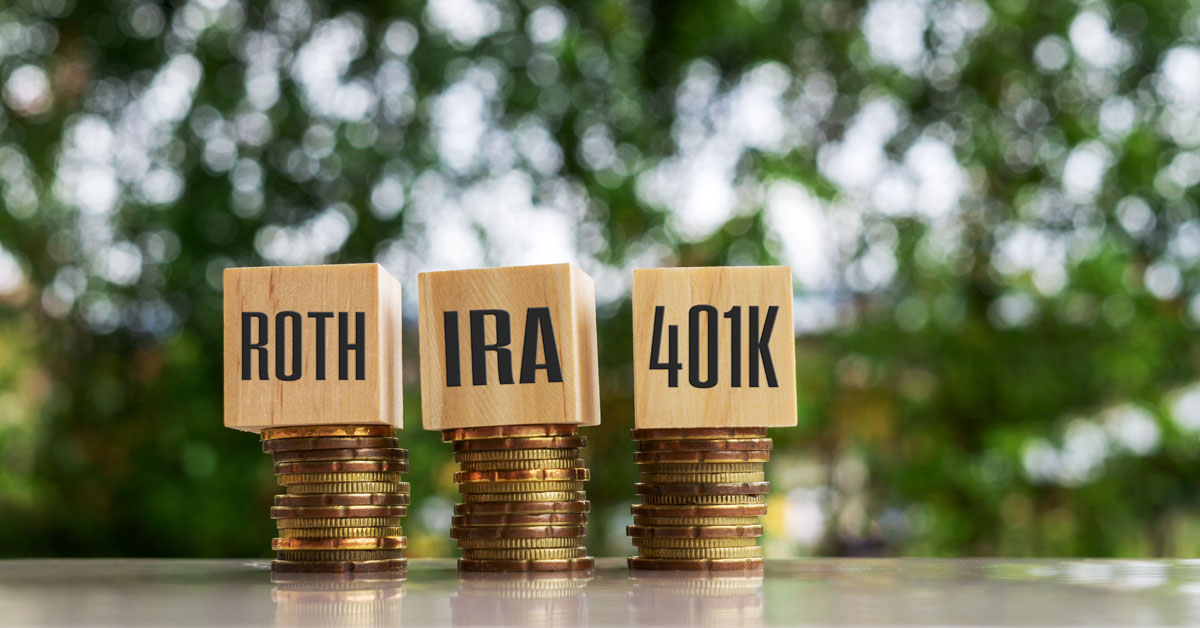When it comes down to your employer offering a retirement plan, there are a lot of items to consider before making your decision of which type of plan to choose. Traditional retirement plans, 401(k), Roth 401(k), IRA, Roth IRA – the list goes on. We’ve broken down these five plans so you can easily decide which type of corporate retirement plan you should use. Keep reading to learn more!
Traditional Retirement Plans
These retirement plans are also called defined benefit pension plans. Once the most common type of retirement plan, defined benefit pension plans offer a specified amount each month. Not only do they consider how long you have been employed, but traditional retirement plans consider your salary history as well when determining the correct amount for your plan.
401(k) Plans
A 401(k) plan is a plan that allows you to defer some of your salary. Rather than getting a fixed amount in your paycheck each month for retirement, a 401(k) plan defers the money. 401(k) plans are typically not taxed until the money is taken out, and these plans are able to be adjusted as little or as much as you would like. In today’s day and age, this is the most common type of employer-sponsored retirement plan.
Roth 401(k)
A Roth 401(k) is a little different from a regular 401(k). This type of retirement plan offers the same benefits of a Roth IRA, but contributions to a Roth 401(k) are not tax-deductible. The earnings you receive from your investments are accrued based on a tax-deferred basis. To determine if you should use a Roth 401(k) or a traditional 401(k), you need to ask yourself if you think you will be at a higher tax rate when you are about to retire.
IRA (Individual Retirement Account)
An individual retirement account is an option that only is available to those with already earned income. This type of retirement plan is also one of the most popular plans to choose from. With an IRA, “Compounding money is a snowball effect—investment returns can be reinvested and generate more returns, which are reinvested,” according to Investopedia.
Roth IRA
A Roth IRA is different from a traditional IRA in that, “You may be eligible to take a tax deduction on your contributions in the year you put the money in, and then your withdrawals in retirement are taxed as income,” (O’Shea & Coombes, 2020). With a Roth IRA, you do not get a tax break on your contributions because you end up getting that tax break later.
As these are brief descriptions of the most common corporate retirement plans, it is best to consult If you are a high earner, and find yourself in a position of uncertainty around what accounts you should be utilizing for your savings, you should consult one of our professionals about which type of plan will work best for you.
Sources
Kagan, Julia. “IRA Plan.” Investopedia, Investopedia, 28 May 2018,
www.investopedia.com/terms/i/ira-plan.asp.
O’Shea, Arielle, and Andrea Coombes. “Roth IRA: How They Work, Rules to Know, Where to Begin.” NerdWallet, 6 Jan. 2020, www.nerdwallet.com/article/investing/what-is-a-roth-ira.


